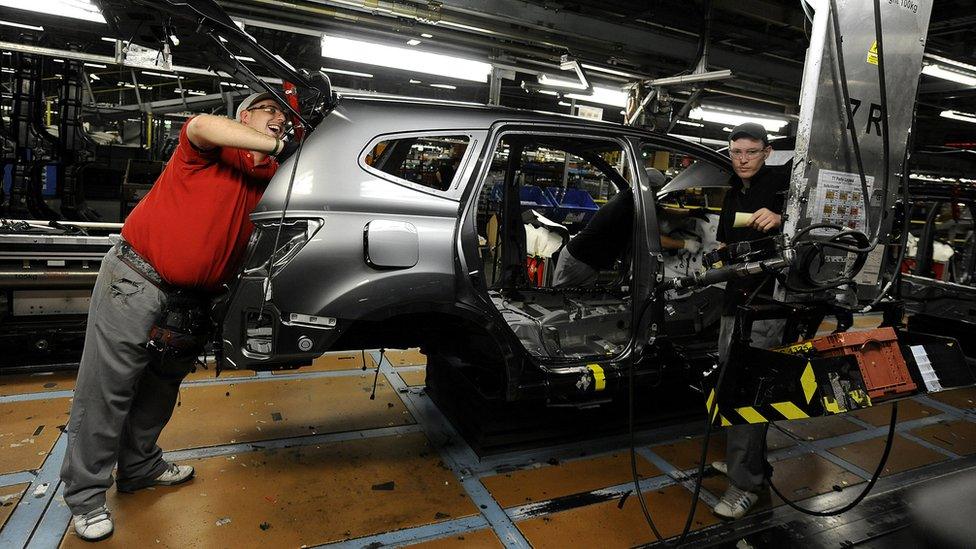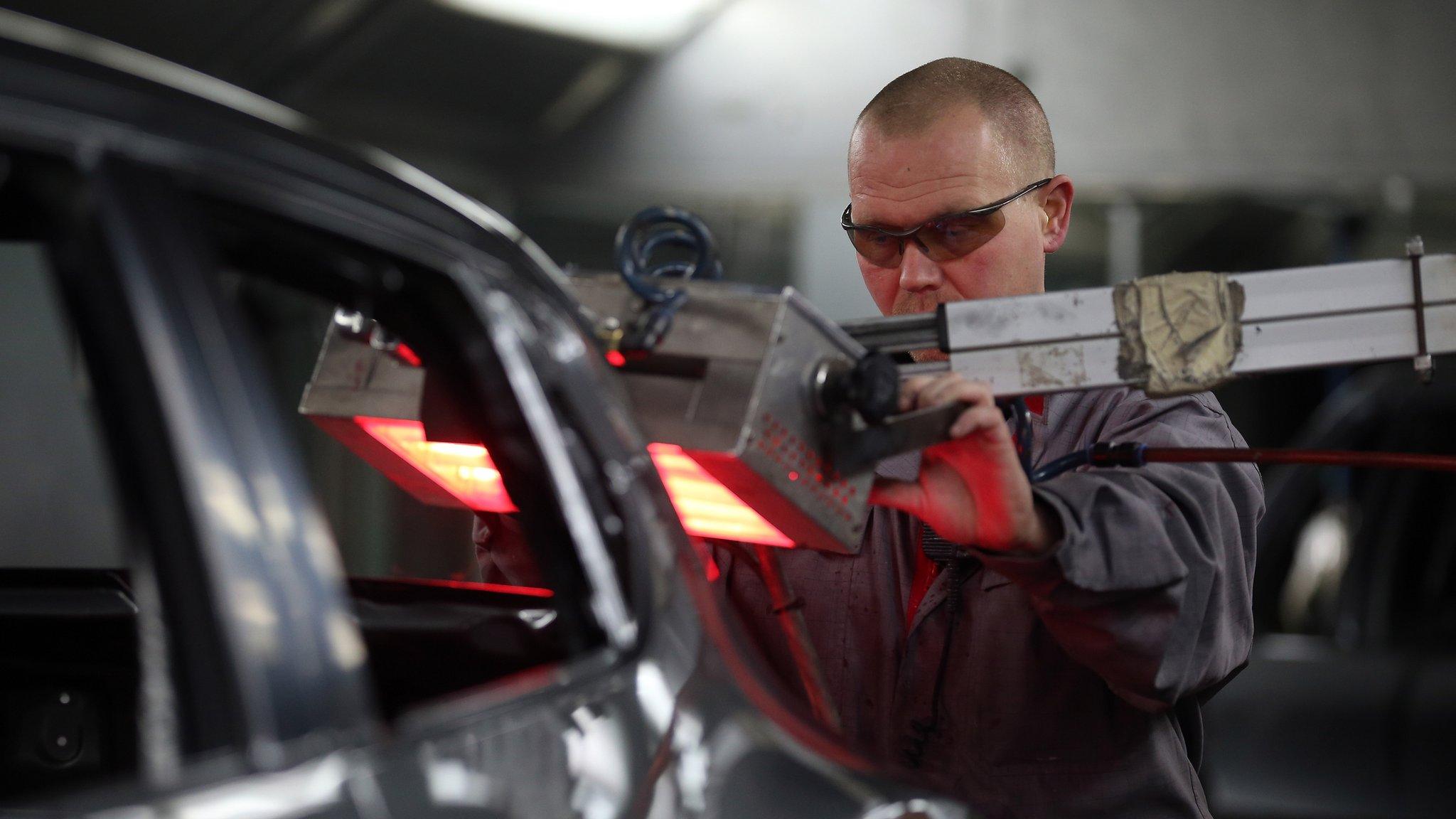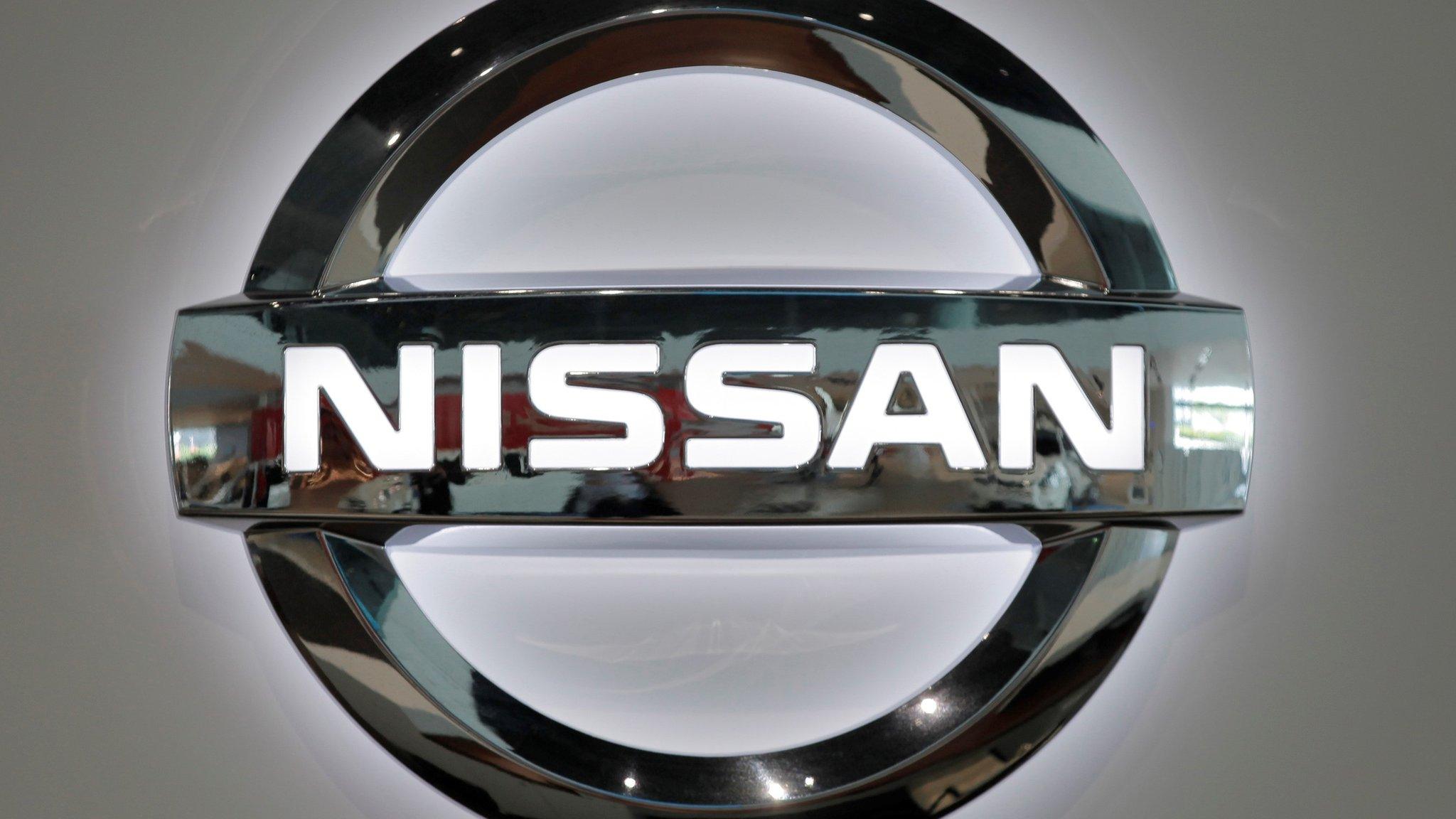Renault-Nissan 'reasonably optimistic' over Brexit
- Published
Renault-Nissan 'reasonably optimistic' over Brexit
The chief executive of Renault-Nissan has told the BBC he is "reasonably optimistic" that the UK will be an important partner with the European Union, despite its vote to leave.
Carlos Ghosn said Nissan is not ready to make decisions on plans for its Sunderland plant, which employs 6,700.
Investment there depends on the outcome of UK-EU talks on Brexit, he said.
In November, Mr Ghosn warned Nissan would reconsider investment in the UK if Britain voted to leave the EU.
"We are reasonably optimistic at the end of the day, common sense will prevail from both sides," Mr Ghosn said.
The Nissan boss thinks that the UK will continue to be a "big partner" for the European Union, but he said: "The question is what will happen to customs, trade and circulation of products.
"That will determine how, and how much we will invest in the UK," he said.
Mr Ghosn described Nissan's Sunderland plant as a "European plant based in the UK", as most of its production is exported to Europe.
The plant made 500,000 cars last year, making it the biggest car plant in the UK, according to Nissan.

Nissan's plant in Sunderland employs 6,700 staff
Car prices
Mr Ghosn said there was "no doubt" that prices for Renaults, and other cars made in Europe and sold in the UK, will rise due to the falling value of sterling.
However, he thinks final prices will only be determined once the pound stabilises.
He said the UK economy will see some contraction "not because there is anything wrong with the UK, but because markets hate uncertainty".
Renault-Nissan says the global car market will continue to be sluggish until 2019.
Olympic impact
Mr Ghosn also said he does not regret Nissan sponsoring the Rio Olympics, at a time when Brazil's car industry is facing its worst year in decades.
Car sales have tumbled 40% in Brazil in three years, due to a severe recession.
The company's goal with the Olympics sponsorship is to help increase its market share in Brazil from 3% to 5%.
- Published3 September 2015

- Published30 December 2020

- Published20 June 2016
